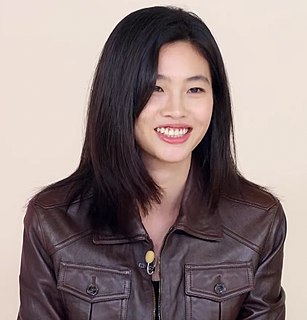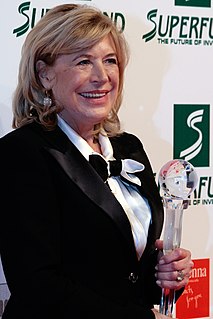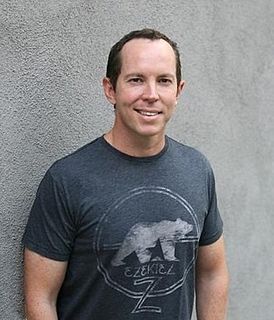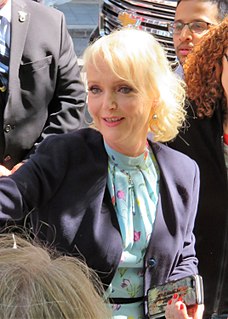A Quote by Mindy Kaling
I'm an actor and a writer and a showrunner and I edit my show. ... I have a job that three people usually have, and I have it in one person. And the idea that the critic thought that I had this excess of time for which I could go to, like, panels or write essays was just so laughable to me.
Related Quotes
The way that TV is set up is very helpful for when a show comes to an end because as an actor, you've got acting, but as a showrunner you still get to edit for three months and after that ends you get to do a sound mix. So, as a writer-performer in television, it's a very nurturing, gradual environment to say goodbye to a show.
I was at Sussex University studying English lit and philosophy, I had two essays due in and three seminars that day, and at the same time I was messaging my manager because I'd just started to put together the pieces of like, 'Wow. I really don't want to be doing any essays anymore. Why don't I just give this music thing a go?'
I never really wanted to be a daily critic who goes out every night and writes 300 word reviews, I wanted to write essays. And that gave me the luxury to be able to go out and if it was lousy, I could just say, well the hell with that, I'll go to hear something else, or, I'll go tomorrow night; I as writing for a weekly.
It is necessary a writing critic should understand how to write. And though every writer is not bound to show himself in the capacity of critic, every writing critic is bound to show himself capable of being a writer; for if he be apparently impotent in this latter kind, he is to be denied all title or character in the other.
Most songs I write are spur-of-the-moment-type things. I have to be spontaneous. If not, songwriting can bore me. There is no pre-design or idea of what I am going to do when I go into the studio. It's all like that for me. I could go in and write two or three songs in an eight-hour session. You can't over-think songs. You just can't.
I was entirely wrapped up in the idea of becoming an actor. I learned how to write on the job, basically out of necessity. I always thought it'd be fun to write something, but it never was an ambition of mine, per se. I just thought, "Well, maybe I'll do it one day just for the hell of it and see if it works."
I'd really like people to see me as a real actress, which I am, but they don't. It's hard to get them to see me as a musician, they just see me as a hanger-on to the Stones, which is not what I am at all. It's a good idea, and if something like that would turn up I could do a whole television show. I've thought about playing a landlady, sort of a mad '60s lady, this absolutely insane character. I would love it. It's a great idea.
A "showrunner" as a position is a relatively new thing. It used to be the executive producer. That's not true anymore. Now it's evolved into this model where people look to showrunners and say, that guy is that show. It's just become a lot more interesting to know the showrunner and to get a sense of that person.
I had tried writing novels for many years, and they always escaped me. For a long time, I thought, 'It's just not in me to write a novel. It's not something I'm able to do.' It seemed like everything I wrote naturally ended at the bottom of page three. A picture book, three pages; an essay, three pages.
It's the idea that when you say 'actress', people think of an airy, floaty, no-brain person, which of course you can't be if you are an actor. It is an unfortunate word, which is why, for a time, I hung on to 'actor', because it just seemed more workmanlike, you know, like you say 'woman doctor' not 'doctoress'.



































